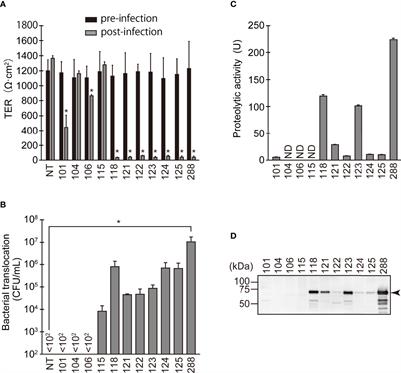EDITORIAL
Published on 10 Jun 2022
Editorial: On the Inflammatory Cascade-From Bacteria Through the Epithelium to the Connective Tissue
doi 10.3389/fcimb.2022.936833
- 1,856 views
- 1 citation
5,429
Total downloads
65k
Total views and downloads
EDITORIAL
Published on 10 Jun 2022
ORIGINAL RESEARCH
Published on 19 Apr 2022

ORIGINAL RESEARCH
Published on 22 Feb 2022

OPINION
Published on 14 Jul 2021

ORIGINAL RESEARCH
Published on 30 Mar 2021
